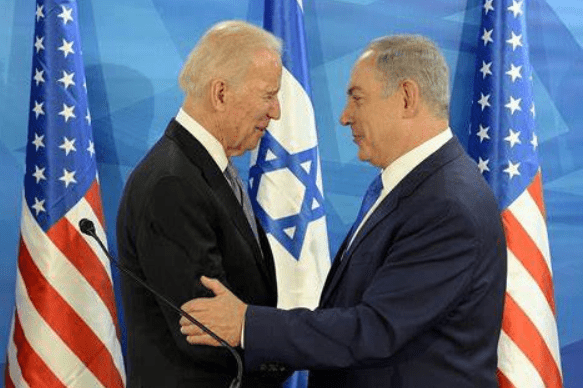US President Joe Biden will pay a diplomatic visit to Israel on Wednesday to demonstrate support for the nation amid escalating conflict with Hamas militants in Gaza.
The President’s top priority during the visit will be to press for ways to ease the dire humanitarian crisis in Gaza, while still affirming Israel’s right to defend itself against rocket attacks launched by Hamas.
“On Wednesday, I’ll travel to Israel to stand in solidarity in the face of Hamas’s brutal terrorist attack,” Biden wrote on X.
“I’ll then travel to Jordan to address dire humanitarian needs, meet with leaders, and make clear that Hamas does not stand for Palestinians’ right to self-determination.”
Secretary of State Antony Blinken has been engaged in discussions with leaders in Jerusalem to negotiate plans that would allow vital humanitarian aid into Gaza while preventing the aid from being appropriated by Hamas forces.
Biden weighed the risks but ultimately determined the visit was important as a show of solidarity and also a chance to clearly convey his views on protecting civilians to Prime Minister Benjamin Netanyahu in person.

More than 1,400 people in Israel lost their lives, and 3,400 were injured when Hamas launched a surprise attack by air, land, and sea on October 7, according to sources.
In Gaza, there have been at least 2,778 casualties from Israeli counterattacks, with another 9,938 people getting injured, as reported by the Palestinian Ministry of Health. These numbers are expected to increase.
In addition to meeting with top Israeli officials, Biden will also be visiting the occupied West Bank to meet with Palestinian President Mahmoud Abbas and reaffirm U.S. commitment to a two-state solution. He will then travel to Jordan for talks with King Abdullah, as the administration seeks to coordinate with regional partners to contain the conflict.
While Biden has not explicitly pushed for an immediate ceasefire between Israel and Hamas, he has reportedly warned Netanyahu about the high number of civilian casualties resulting from Israeli airstrikes on Gaza. Biden’s personal relationship with Netanyahu is expected to shape the U.S. response as the crisis continues.
Behind the scenes, the U.S. has also been engaging in back-channel diplomacy with Iran in an effort to prevent further escalation that could ignite a wider regional war. The U.S. military has been preparing for the possibility of conflict spreading and needing to protect American assets and allies in the area.
The administration has additionally been relying on the help of Egypt to try and establish a humanitarian corridor for aid and evacuate civilians to leave Gaza, though it has not yet been opened due to instability on the ground. The U.S. is also coordinating with Saudi Arabia and other regional partners to find a resolution to the crisis.
While Biden’s visit intrinsically links him to Israeli military actions, it also demonstrates the administration’s determination to contain the conflict by directly engaging regional powers. The overarching priority is finding a delicate balance between providing unconditional support for Israel and addressing the worsening humanitarian emergency in Gaza.
With tensions showing no signs of abating soon, President Biden’s visit underscores America’s commitment to Israel’s security and to stabilizing the volatile situation before it escalates into a full-blown regional war. His administration will continue working to ease civilian suffering on both sides while firmly supporting Israel’s right to self-defense against terrorism.

